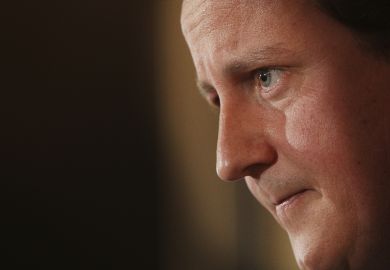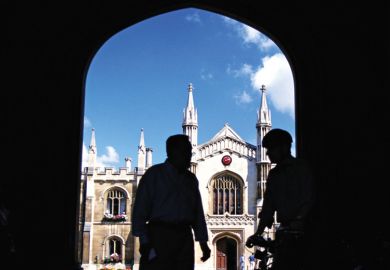Four universities are to trial name-blind applications for some courses next year, to combat the risk of “unconscious bias” against ethnic minority students.
The universities of Exeter, Huddersfield, Liverpool and Winchester will assess some applications for 2017 entry with the names of students blanked out, alongside a drive to improve training about unconscious bias for admissions staff.
The project, coordinated by Ucas, was initiated by former prime minister David Cameron amid concern about the continuing under-representation of black and ethnic minority students at some leading universities.
However, Mr Cameron’s plan for all university applications to be name-blind from 2017 has been rejected by institutions, which expressed concern about a detrimental impact on the relationships they would be able to build with students.
In a consultation conducted by Ucas, vice-chancellors warned that it would be harder to identify and support applicants from disadvantaged backgrounds who had attended outreach programmes, and there were also concerns about the cost of changing application management software. In addition, a supposedly name-blind approach would not prevent an applicant’s name appearing elsewhere on the form, for example in a personal statement.
Ucas’ report on the consultation, which 120 universities responded to, says that there is “a sense that there is insufficient evidence of a problem to warrant the scale of investment and business change that would be needed to adopt name-blind applications”.
The preferred approach, therefore, is for universities to take their own decision on whether to adopt name-blind admissions, and the pilot has been designed to encourage others to follow suit.
Alongside this, the Supporting Professionalism in Admissions organisation will lead the development of training in unconscious bias for university staff who consider applications.
Helen Thorne, Ucas’ director of external relations, said that a careful balance had to be struck.
“Admissions professionals are concerned that if Ucas were to mask names centrally, this could affect their ability to maintain relationships with students and undermine efforts to widen participation,” she said. “The projects being undertaken in 2017 will enable universities to evaluate the effectiveness of a name-blind approach and how it could complement existing approaches used to ensure that admissions are fair for all.”
Ucas maintains that admissions to UK universities are “broadly fair” and argues that differences in admissions can largely be explained by previous attainment, and the competitiveness of courses that different types of students apply to.
However, data released by Ucas earlier this year revealed that black applicants were less likely than expected to get an offer at 100 universities, while Asian students were less likely to get an offer at 90.
Vikki Boliver, senior lecturer in sociology and social policy at Durham University, who has studied admissions to elite institutions, said that Ucas was taking the right approach.
“If admissions decisions are influenced by conscious or unconscious bias, then the solution is not to remove information that triggers those biases, but to develop processes and foster cultures in which such biases are recognised and redressed,” she said.
Register to continue
Why register?
- Registration is free and only takes a moment
- Once registered, you can read 3 articles a month
- Sign up for our newsletter
Subscribe
Or subscribe for unlimited access to:
- Unlimited access to news, views, insights & reviews
- Digital editions
- Digital access to THE’s university and college rankings analysis
Already registered or a current subscriber? Login










